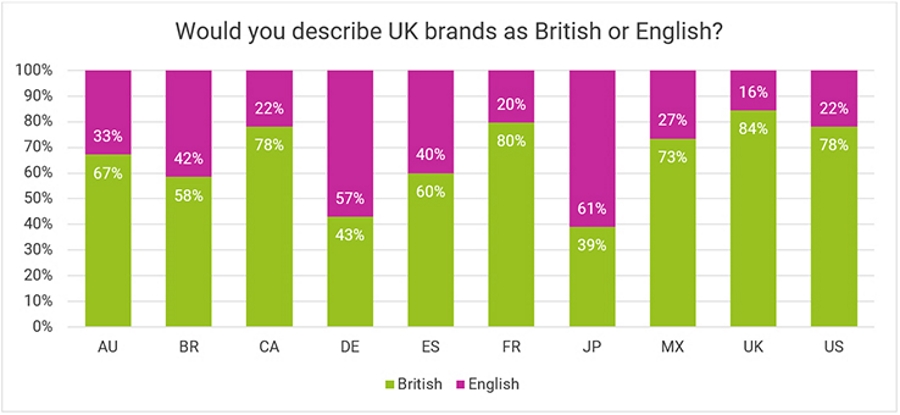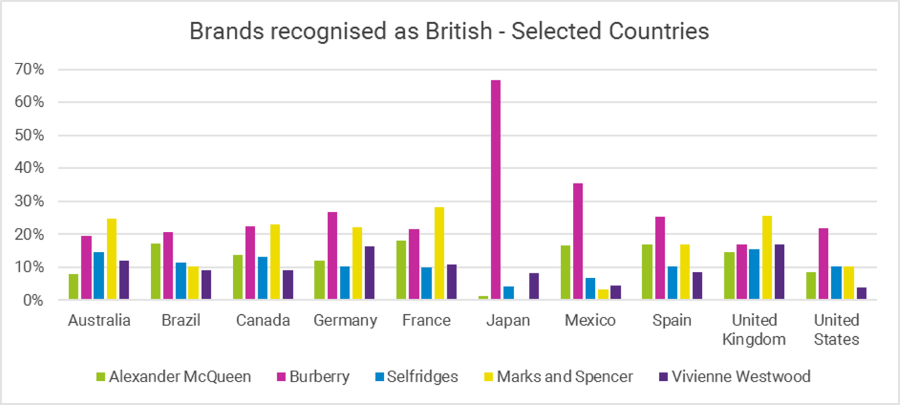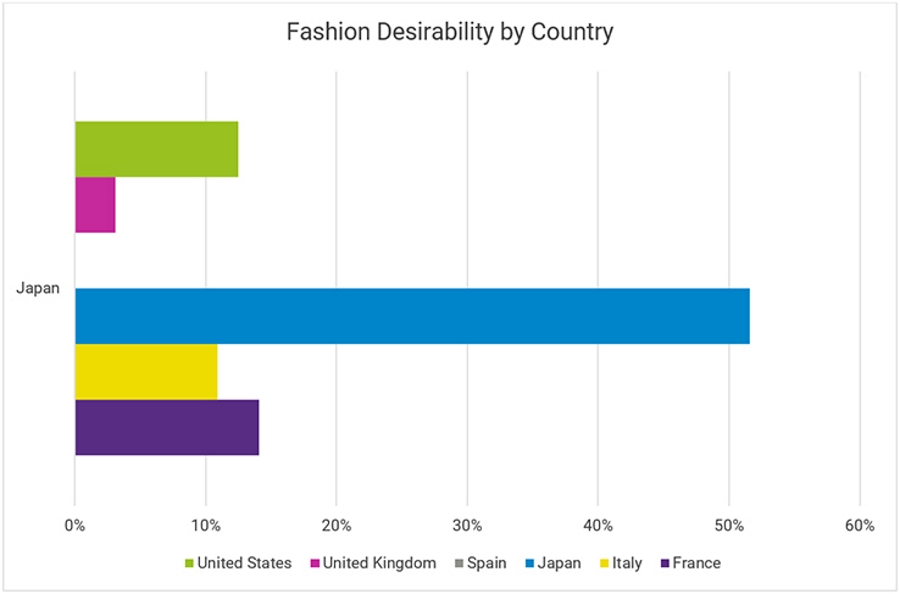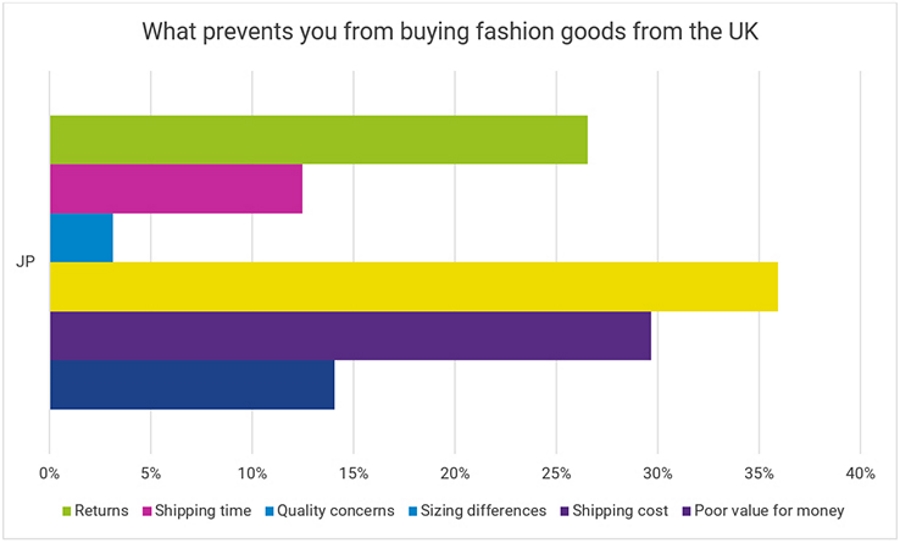
Buritisshu or Igirisu? How to make your fashion brand more visible in the Japanese market?
Japanese consumers have a reputation for embracing new technology, contemporary design and also heritage products, but how do they view British fashion goods? How important or not is Britishness? And what are the e-commerce opportunities for British fashion brands?
Japan is ranked 4th most productive country, (according to the International Monetary Fund, Oct 2017), and its e-commerce consumers are expected to grow to 88.92 million by 2021, with an estimated average spend of 1,257.37 USD online.
Fashion is expected to become the most purchased online category by 2021, according to eshopworld, accounting for almost a third of this spend, with an estimated value of 32.23 billion USD. It will overtake Electronics & Media and present significant opportunities for cross-border brands.
Oban International ran a survey across 1000 fashion shoppers in 10 international markets to find out if these customers would describe UK fashion brands as British or English and to understand individual country perceptions of UK fashion brands and any barriers to purchase.
Buritisshu or Igirisu?
Japan is one of two markets which stand out in this breakdown, alongside Germany. Japan favours ‘イギリス’ (“Igirisu” rather than ブリティッシュ – “Buritisshu”) and Germans are more likely to refer to ‘Englisch’ (rather than ‘Britisch’) brands.
To understand why the Japanese are more likely to use the equivalent term for English over British, we asked Oban’s unique LIME (Local In-Market Experts) network in Japan. Masaharu suggests historical usage.
“イギリス (Igirisu) is the oldest word, so it’s the most common term used. Igirisu – means “English” and comes via the Portuguese word Inglês. It is usually used by Japanese people to mean the UK as a whole.”
Momoko offers, “We refer to England over Britain in history and geography. That stems from our school education. Hence media, products and communications in general use England more commonly than Britain.” However, she goes on to say, “Japanese people may be more familiar with the sound of the word ‘English’ than ‘British’, but that doesn’t mean they are genuinely thinking of English rather than British. Most people know the difference between Britain and England, but many may not be able to tell the difference between English and British brands.”
Compared with Germany, where customers are using the word Englisch in online searches for some fashion verticals, current online search volumes for British versus English fashion in Japan do not reflect the responses from our Japanese consumer sample. For example, there were 4,600 searches for “British fashion” compared to just 10 for “English fashion”, a pattern reflected in searches for dresses and suits. The rise in voice search may change this, and it will be worth tracking the more commonly used word Igirisu.
Brand recognition
When we asked our consumer sample to identify British fashion brands from a provided list from around the world, Burberry was universally recognised as British by respondents across all ten markets including Japan. Perhaps this recognition is unsurprising considering their marketing heavily emphasises their British heritage, which appears to be paying off. Around three-quarters of Japanese respondents knew that Burberry was British, but they scored very poorly on identifying other British brands compared with the other markets researched. This may reflect the marketing investment by other British brands in Japan, combined with their decision not to focus on Britishness as part of their marketing communications.

Desirability
We then asked respondents in each country to rate how desirable fashion brands were from various international markets.
The chart below shows that Japan scored UK fashion brands the lowest. They scored Japanese brands highest but still scored French and Italian fashion as highly desirable.
“France and Italy are simply better at branding, from fashion to food, to movies to the destination in general. It does not necessarily mean British brands are not stylish, or bad.” This was the response from our LIME, Momoko to our findings on how Japanese consumers ranked different country’s fashion products for desirability.
The Japanese were second only to the French in the numbers rating their local fashion products most highly. One further visibility challenge for British brands is the thriving Japanese fashion industry with the likes of Uniqlo, Issy Miyake, Evisu and Undercover.

Abandon cart?
We also asked our sample what prevents them from buying fashion goods from the UK? Japan was unique among the countries outside the UK in ranking sizing differences as their most important concern. For our other markets shipping cost was by far the biggest issue. Shipping cost and returns policies are concerns for Japanese consumers but not as much as sizing concerns. On a positive note, Japanese rate British fashion for high quality and the majority say it provides good value for money. Only 3 % cited quality concerns, significantly less than our other markets.

Three key areas for international fashion retailers selling in Japan to consider:
- The dominance of British over English as a search term, compared with the predominant use of the word English to describe the UK.
- Understand where the terms are interchangeable and how their usage in specific vertical consumer fashion searches.
- Test whether promoting your brand’s British/English origins increases your search volume and sales opportunities.
- Test English compared with British for voice search.
- Shoppers in Japan are particularly concerned about sizing differences and see that as a significant barrier to purchasing UK fashion.
- Sizing differences are also linked to other main concerns expressed by Japanese consumers – shipping cost and returns. If consumers are more confident that a product will fit, they will be less worried about the shipping cost and returns policy. Having clear, consistent sizing information will improve consumer confidence and profitability.
- It is worth putting specific product sizes in the product details, particularly if you sell products from a variety of suppliers who don’t size consistently.
- Local language customer support, available at appropriate local times, helps provide reassurance and can answer customer questions on sizing.
- Awareness of the Britishness of UK fashion brands is low in Japan.
- Burberry is a notable exception as 75% of Japanese shoppers recognise that the brand is British.
- Consider whether Britishness offers a positive brand message and the steps needed to promote it
- Consider using local influencers as part of your social media strategy to build brand awareness and sales.